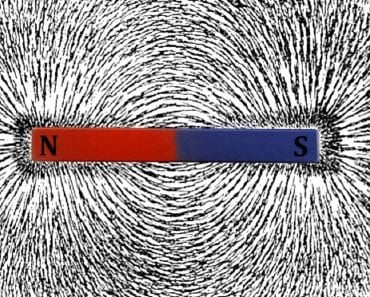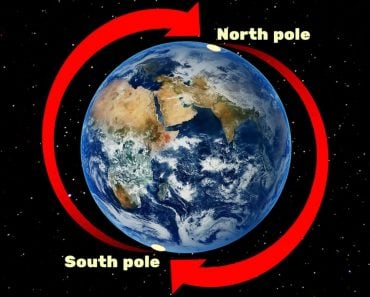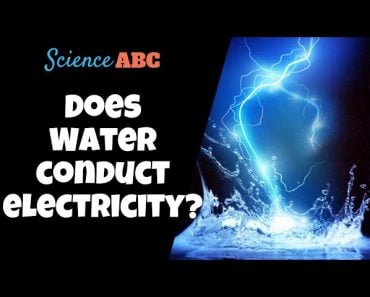Table of Contents (click to expand)
A magnetic field can theoretically deflect a stream of water. Practically, however, factors like the nature of the magnet come into play.
Water, along with atmospheric oxygen, is the source of all life on Earth. Water covers about 71% of Earth’s surface and comprises about 60% of the human body. The formula of water is H2O, i.e., it is composed of two molecules of hydrogen and one molecule of oxygen.
Water is electrically neutral, but it is a polar molecule. A polar molecule contains a positive charge at one end and a negative charge at the other, just like the north and south poles of the Earth.
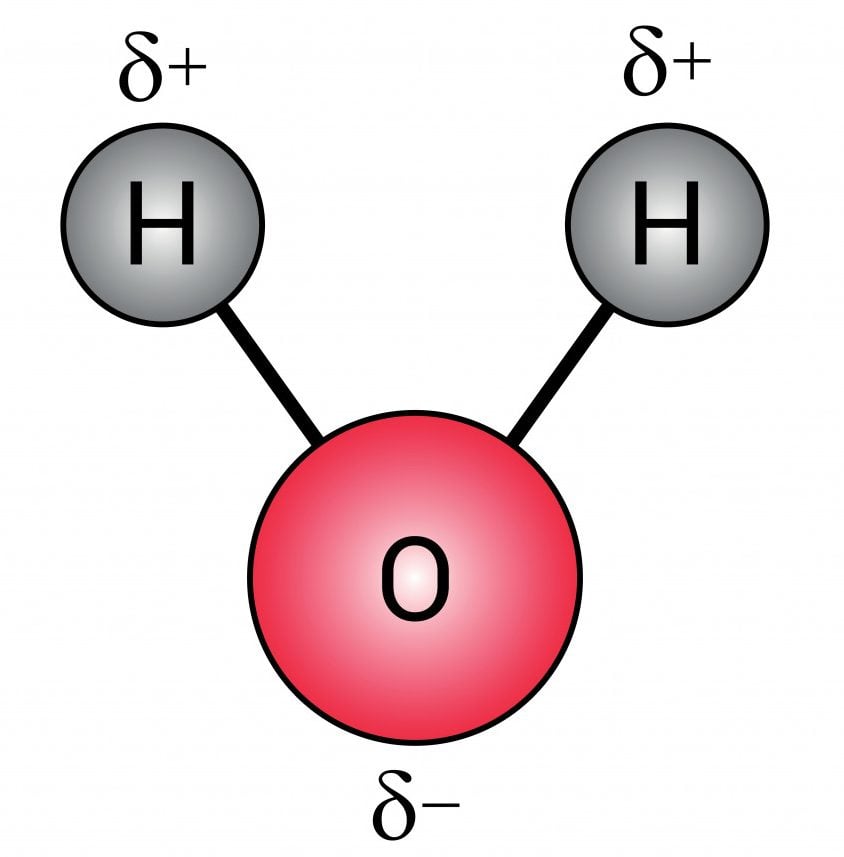
Recommended Video for you:
Magnetism In The Universe
Every object in the Universe possesses a magnetic field, even though it exists at the atomic level for most objects. This is because, in particle physics, a magnetic effect is induced by the spin of all elementary particles, such as atoms and molecules. However, due to the sheer number of such particles, these fields are cancelled out, so the effect of these magnetic fields cannot be felt in everyday life.
Earth, however, is not such a minuscule particle. The Earth’s magnetic field is so strong that it is responsible for the spherical shape of the Moon due to its effects during the Moon’s formation. Furthermore, since water covers 70% of the Earth’s surface, it is critical to study the effects of a magnetic field on water.
Water is diamagnetic in nature. Diamagnetism1 is the phenomenon in which a material repels an external magnetic field due to the formation of an opposing magnetic field within the material. This opposing magnetic field is weak, and lasts only so long as the external magnetic field is applied to the material. Therefore, water, being diamagnetic, is repelled very slightly by a magnetic field. So yes, a stream of water, such as falling raindrops or a river stream, can be deflected by a magnetic field. This is the short answer to the question.

The longer answer to the question takes into account various other factors that decide whether deflecting a stream of water using a magnetic field is practical. As stated above, diamagnetism results in a feeble opposing magnetic field, as compared to the applied external magnetic field, so the deflection induced is very slight. Consequently, if the applied external magnetic field is also of a very low magnitude, the deflection becomes negligible, since it leads to no real change at all. Thus, while some deflection is induced on principle, it does not translate practically.
Now, let’s consider the case of water that contains impurities, such as saltwater. Saltwater contains dissolved salts, such as Sodium and Chlorine, which exist as positively and negatively charged ions. An external magnetic field doesn’t affect stationary charges. Moving charges, however, are deflected by magnetic fields, so a magnetic field will deflect these moving ions in a stream of water. This deflection depends on the charge and nature of the ions, as well as the strength of the magnetic field.
Effect Of A Magnetic Field On A Moving Charge:
The force on a particle of charge q, moving with a velocity v, with an angle of x to the direction of the magnetic field, is calculated using the following formula:
F = q v B (sin x)
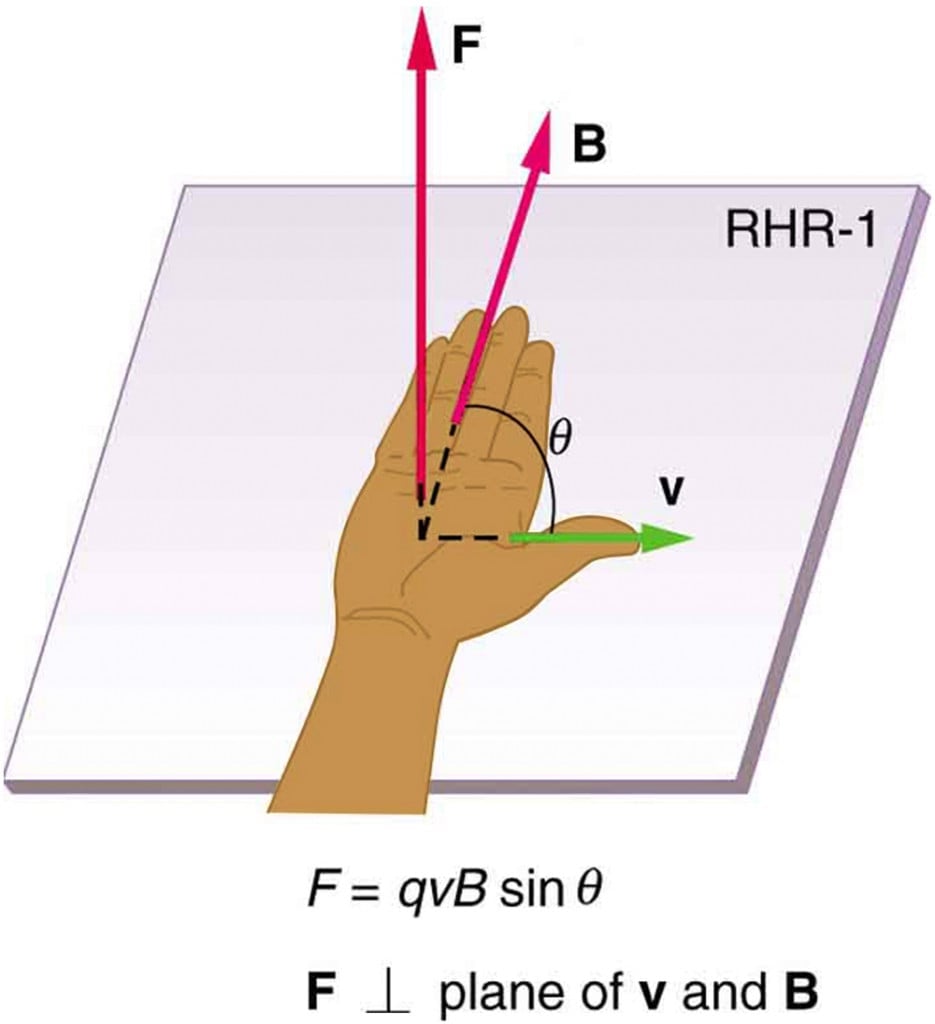
So, while it is possible to deflect a stream of water, such as raindrops, using a magnetic field, it is not practical to do so, as the concentration of such ions in the raindrops is far too low to be visibly affected by even the strongest of magnets.
For reference, let’s look at larger streams of water, like a river or an ocean. Due to their volume, these bodies of water contain a high concentration of charged particles in motion. Here, the Earth’s magnetic field causes these ions to get pushed towards separate regions inside the water, creating distinct regions that consist of higher concentrations of positive and negative charges. Similarly, suppose a stream of water is brought under the influence of the magnetic field of a powerful magnet. In that case, it could be deflected, provided that the concentration of ions it contains is sufficient, along with the strength of the magnetic field.
Can Any Magnet Deflect A Stream Of Water?
An important point to note is that the magnets strong enough to cause such deflections (e.g., Neodymium-Iron-Boron or NIB Magnets) do not occur naturally, i.e., they aren’t permanent magnets. They are electromagnets. An electromagnet2 is a magnet where the magnetic field is caused by a flowing electric current. The electromagnet’s strength depends on the magnitude of the electric current inducing it. Ampere’s Law3 defines the relationship between the two. This magnetic field disappears as soon as the current stops flowing.
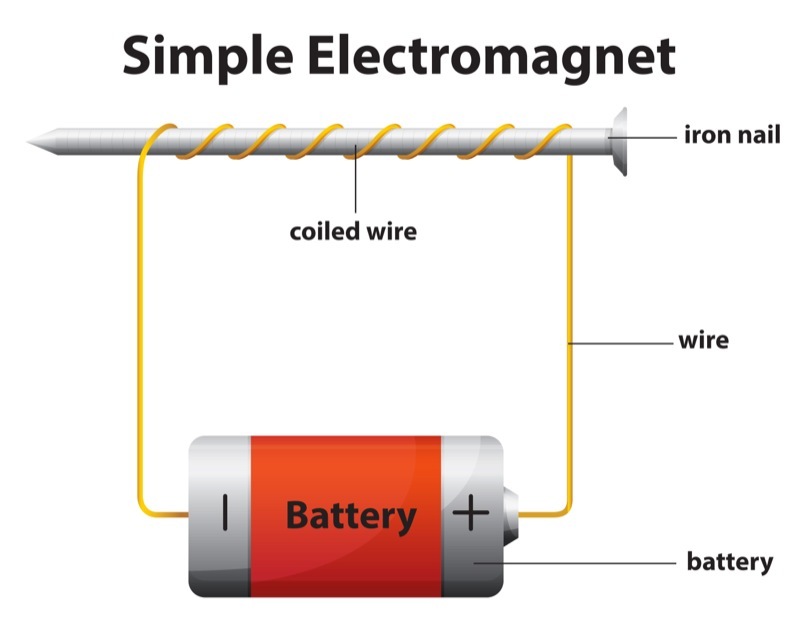
Therefore, electromagnets are generally much stronger than permanent magnets. Since the strength of an electromagnet can theoretically be increased by as much as the magnitude of the current can be increased, there is a point where it will be capable of deflecting a stream of water.
Fun Fact
If the electromagnet is strong enough, even tiny creatures comprised primarily of water, such as frogs and grasshoppers, can be levitated using the concept of diamagnetic repulsion. A team of British and Dutch scientists proved this in an experiment in 1997!




